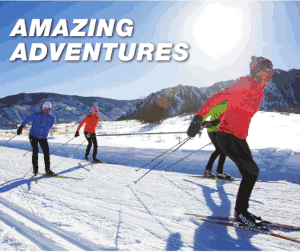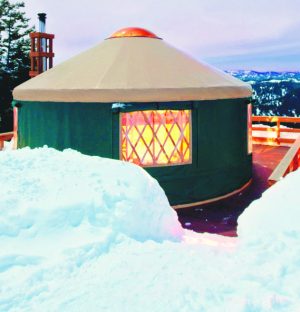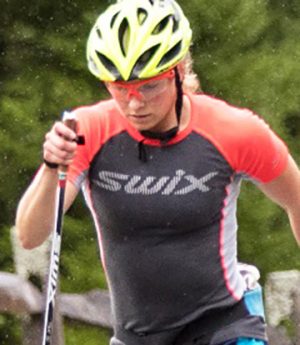February 13, 2014 (Sochi, Russia) – American Lowell Bailey lit up the US Biathlon camp with a historic 8th-place result in the men’s individual 20km, missing only one shot on the range to mark the best individual finish for a U.S. Olympic biathlete. Taking his second gold at the Games was Martin Fourcade of France, who also had one penalty completing the course with a time of 49:31.7.
![Lowell Bailey crosses the finish at the 20k individual Olympic event. [P] Paul H. Phillips/Competitive Image](http://skitrax.com/wp-content/uploads/2014/02/lowell-indiv-finish.1.jpg)
Germany’s Erik Lesser shot clean and was in the lead on the final leg but could not hold off a charging Fourcade as he settled for the silver while Evgeniy Garanichev gave Russian fans more Olympic hardware to cheer about as he claimed the bronze at 34.5 seconds back also with one penalty.
The top Canadian was Brendan Green in 21st with two missed targets at 2:33.6 behind followed by teammate Nathan Smith in 25th at 3:09.6 suffering three penalties. Following Smith in 35th was teammate Jean Phillip Le Guellec in 35th also with two penalties.
The USA’s Tim Burke was 44th with four penalties followed by teammate Russell Currier in 50th also with four missed shots. Canada’s Scott Perras placed 59th with the same four missed targets while American Leif Nordgren ended up was 83rd with a six penalties.
In Vancouver 2010, Jeremy Teela (Heber City, Utah) had the best U.S. finish – ninth in 10k sprint. Previously, Jay Hakkinen (Kasilof, Alaska) posted a 10th in the 20k individual in the 2006 Turin Olympic Games.
“I feel a lot better than I did the last two races,” said Bailey. “I was the most disappointed that I’ve ever been after the pursuit. I knew I could be better than that. Fortunately, I have a group of coaches, trainers and support that I think are the best in the world. They really helped me wake up the next day and realize that those were only two races out of hundreds of races that I’ve done. I’ve spent the last two days working on skills and getting back to the fundamentals that we’ve worked on for the last 20 years.
“I was just so down. You spend your whole life working for something then see it fall apart in a matter of 35 minutes. It can really beat you down if you don’t step back and gain some perspective. The first person I saw after my (pursuit) race was my mom. I think that was the first step to getting back mentally and understanding where I was, what this is all about, and what I’m here to do.
“It wasn’t until the fifth loop, when I witnessed the emotion of one of our staff members, that I knew it was a good race. I had a feeling it was a good race because you kind of know how you are doing on the course, and then hitting 19 of 20 you hope that’s good enough to do something.
“Today was the textbook definition of biathlon. One day you can be at the bottom and the other day you can be at the top, which for me was in a matter of 72 hours,” Bailey added.
Canada’s Green was also pleased with his performance. “I think today was another fairly decent day for myself, it was a challenge skiing with the warmer conditions; they did salt the tracks, which definitely firmed the course which was helpful, but still a tough day.
“At this venue the shooting’s always pretty good, so yeah it’s a fairly good result and I’m definitely hungry for more, the potential was there and I’m kind-a just waiting to capitalize on that. Thanks to everyone at home for the support, getting lots of messages and that sort of thing. Glad I can represent the northern pride, thank you so much, ” he added.
Teammate Smith had another good day at the office during his first Olympic experience and hopes to make the 15km Mass Start this Sunday (Feb. 16). “I started off really well, I’d say my skiing was pretty good for the whole race, I just had a little bit of difficulty standing, so that’s the difference, I missed a couple too many shots, that was probably what kept me out of the top 10.
My first Games have been a really good experience, I’ve had some good races so I can’t complain. Looking ahead to the Mass Start I think I’ll be in it…it’ll be my first ever so, it’s gonna be fine.”
Full results here.
Temperatures climbed to 55 degrees on the course Thursday afternoon making for unique conditions. “I’ve been at every Olympics since 1992 and we’ve never had temperatures like this for a competition,” said US Biathlon CEO Max Cobb.
Bailey said he worked with his coaches to adjust his climbing technique for today’s conditions. “The hills when they are so warm like this, they get so deep,” he explained. “We’ve trained a lot on World Cup conditions and it’s a different style. You have to distribute the power and change the way you ski in these slower, deeper conditions. I thought about that a lot in today’s race and tried to adjust my technique.”






![National camp action [P]...](https://skitrax.com/wp-content/uploads/2019/08/Duluth-4-2019-08-08-at-10.46.51-AM-300x246.png)
![Matt Liebsch on the CXC Elite Team [P] CXC...](https://skitrax.com/wp-content/uploads/2019/08/Matt-Liebsch-CXC.2-525x700.4-300x267.jpg)
![Dan LaBlanc [P]...](https://skitrax.com/wp-content/uploads/2019/08/Dan-LaBlanc-img_1855.3.jpg)

![Tim Burke (USA) [P] Nancie Battaglia](http://skitrax.com/wp-content/uploads/2014/02/NBxBurke-1322c-copy.jpg)
![Brendan Green (CAN) [P] Nancie Battaglia](http://skitrax.com/wp-content/uploads/2014/02/NBxGreen-1561c-copy.jpg)
![Nathan Smith (CAN) [P] Nancie Battaglia](http://skitrax.com/wp-content/uploads/2014/02/NBxSmith-1459c-copy.jpg)
![Men's podium (l-r) Lesser 2nd, Fourcade 1st, Garanichev 3rd [P] Nordic Focus](http://skitrax.com/wp-content/uploads/2014/02/M-Podium-13022014cm44-copy1.jpg)